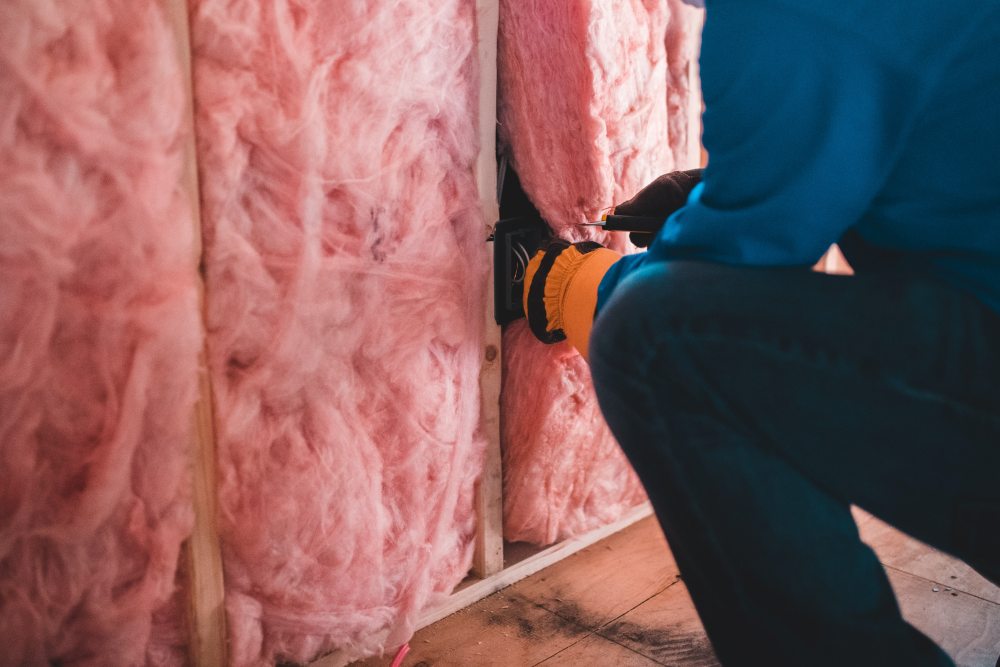
If you're like most people, the word "R-value" probably doesn't mean much to you. But if you're in the insulation market, it's a good idea to become familiar with the term. R-value is a measure of thermal resistance, which indicates how well a material can insulate. In simpler terms, the higher the R-value, the better the insulation. There are a few things to keep in mind when considering R-value. First, it is crucial to understand that R-value measures thermal resistance, not thermal conductivity. This means that two insulation materials with the same R-value can have different levels of heat flow. The second thing to remember is that R-value is not a measure of quality. A material with a high R-value may be more expensive, but that doesn't necessarily mean it's a better insulator.
R-value is important because it helps to determine how effective a material will be at insulating your home. A higher R-value means better insulation, which can lead to lower energy bills and a more comfortable home. For example, if you live in a freezing climate in the winter, you'll want to ensure your home is well-insulated, so you don't have to spend a lot of money on heating. Another example is if you have a room in your home that is always hot, insulating it with a material that has a high R-value can help to keep the heat out. R-value is usually expressed as a number between 1 and 10. The higher the number, the better the insulation. For example, a material with an R-value of 2 has better insulating properties than a material with an R-value of 1. Several factors affect the R-value, including the type of material, the thickness of the material, and the density of the material.
There are many different types of insulation available on the market, each with its own R-value. Some of the most common types of insulation include:
Cellulose
Cellulose is an insulation material made from recycled paper products. It's treated with fire retardants and insecticides, making it a safe choice for the home. Cellulose has an R-value of 3.8 to 3.9 per inch. The density of cellulose insulation ranges from 2.5 to 3 pounds per cubic foot.
Fiberglass
Fiberglass is one of the most popular insulation materials, and it's made from glass fibers. It comes in two forms: batts and rolls, which are both easy to install. Fiberglass has an R-value of 2.9 to 4 per inch. The density of fiberglass insulation ranges from 2 to 4 pounds per cubic foot.
Foam Insulation
Foam insulation is one of the most effective insulation materials, with an R-value of up to 7 per inch. It's available in two types: closed-cell and open-cell. Closed-cell foam is denser and has a higher R-value, while open-cell foam is lighter and less dense. If you're interested in opting for Foam insulation, hire a qualified contractor to install it, such as iFoam. Incorrect installation can result in lower R-values and might even cause health problems.
Mineral Wool
Mineral wool is made from rock and slag, making it one of the most durable insulation materials. It's also fire-resistant and has a high R-value, making it a good choice for homes in fire-prone areas. Mineral wool has an R-value of 3 to 4 per inch. The density of mineral wool insulation ranges from 2 to 4 pounds per cubic foot.
Polystyrene
Polystyrene is a type of plastic, and it's available in two forms: expanded and extruded. Expanded polystyrene is lightweight and has a lower R-value, while extruded polystyrene is heavier and has a higher R-value. Polystyrene has an R-value of 4 to 5 per inch. The density of polystyrene insulation ranges from 2 to 5 pounds per cubic foot.
When choosing insulation, it's essential to consider the R-value as well as the other factors that will affect its effectiveness. Insulation with a high R-value is a good choice for most homes, but other factors should also be considered. Insulation is a critical part of any home, and choosing the right product for your needs is important. With so many products on the market, it's essential to research to find the best possible insulation for your home.
EDITORIAL POLICY
Editorial Policy: The Flash List is dedicated to providing trustworthy editorial content by maintaining strict ethical standards, journalistic integrity, and credible professionalism regardless of any remuneration as working media. The Flash List is not affiliated with third-party companies mentioned and makes no endorsement or guarantee expressed or implied. The preceding article is intended for informational reference only, and does not constitute advice of any kind. Moreover, a qualified professional should be consulted regarding any lifestyle consideration, medical treatment, or monetary transaction, etc. Content contains affiliated link(s) for which compensation was received in accordance with USFTC regulations and terms and conditions.
MORE ON THE FLASH LIST
































